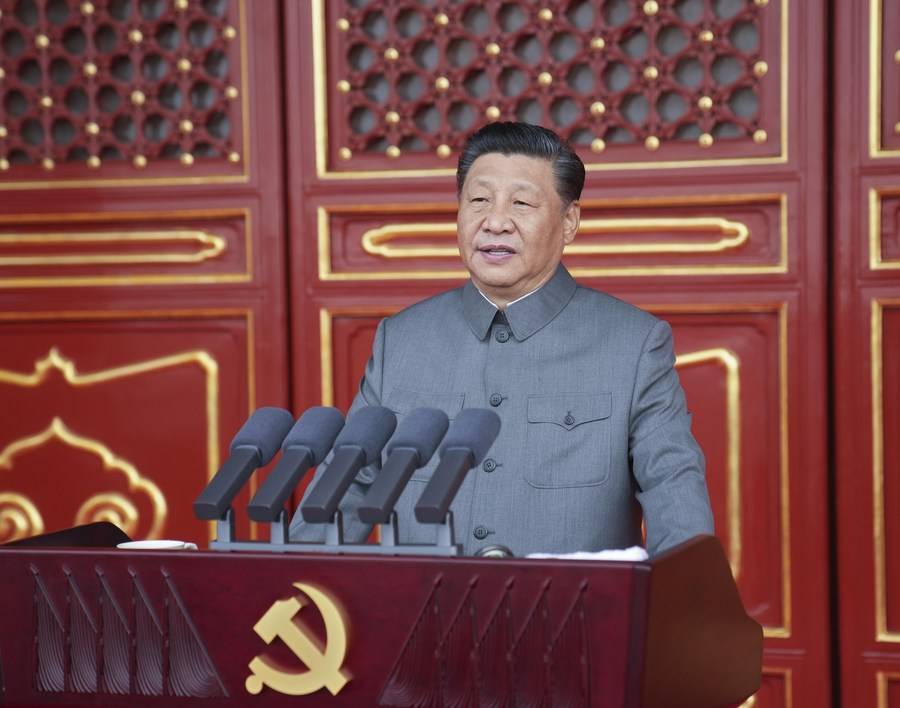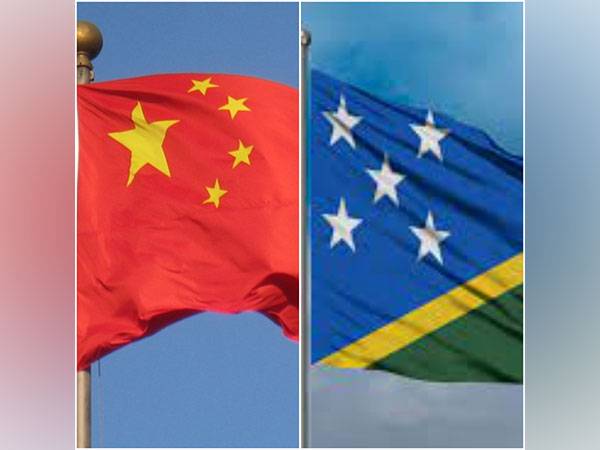Unlike the national government, Malaita Province continued to be supported by Taiwan and the United States, with the latter sending 25 million US dollars of aid to the island in 2020..reports Asian Lite News
Solomon Islands’ latest security deal with China has stirred a political storm in the islands with the Opposition demanding a reversal of the pact.
Solomon Islands’ main opposition leader Matthew Wale said that there is no transparency in the China-Solomons agreement and added that the people do not want the pact with Beijing.
Wale maintained that there is strong opposition to Prime Minister Manasseh Sogavare’s security deal with China. He also claimed that those opposed to the deal included members of Sogavare’s government as well.
In conversation with The Strategist, Wale stated that the vast majority of ordinary Solomon islanders did not want any sort of security arrangement with China, and they would be very concerned about this one being signed.
“It’s clear to me that the vast majority of ordinary Solomon islanders do not want a base here, or even this deal. A majority of the people do not want China here at all in the first place,” said Wale.
The opposition to high profile security deal with China cannot be seen in isolation. It is linked to the 2021 Solomon Islands unrest. The Solomon Islands had previously been among only a handful of countries with diplomatic ties to Taipei rather than Beijing, a significant proportion of which are in the South Pacific. In September 2019, PM Sogavare established formal diplomatic ties with China. According to news reports, around 730 million US dollars worth of financial aid had been promised by Beijing to the Solomons, one of the Pacific’s poorest nations, in exchange for the move. This led to Taiwan terminating its diplomatic relations with the Solomon Islands after 36 long years.

The government’s decision to switch diplomatic relations with China was opposed by Malaita Province Premier Daniel Suidani who had openly criticised the government. Malaita province is the most populous island in the Solomon Islands archipelago. South Pacific geopolitical researcher Ed Cavanough had told abc.net.com there was evidence that a relationship between the province and Taiwan remained in some form.
Unlike the national government, Malaita Province continued to be supported by Taiwan and the United States, with the latter sending 25 million US dollars of aid to the island in 2020. Malaita Province premier Suidani held an independence referendum in 2020 which the national government had dismissed as illegitimate. Rising unemployment and poverty, worsened by the border closure during the COVID-19 pandemic, have also been cited as a cause of the unrest. Chinese businesses were also accused of giving jobs to foreigners instead of locals.
The islands witnessed a series of demonstrations and violent riots in November 2021. It had started off as a peaceful protest against the government’s decision to recognize China over Taiwan which turned out violent as protesters attempted to storm Parliament to depose PM Sogavare. Businesses, mainly in the islands’ capital Honiara’s Chinatown district, were burnt and looted. A police station had been set on fire. The police had used tear gas shells to disperse protestors and the government had sought help from the Australian Government. Australia had deployed the Australian Federal Police and Defence Force. Papua New Guinea and Fiji had also dispatched peacekeepers while New Zealand deployed police and troops.
A no-confidence motion was moved in the Parliament by the opposition member but it got defeated on the floor of the house in December 2021.
Honiara has also seen violent demonstrations target ethnic Chinese-owned businesses in the past. In 2006, following the election of then Prime Minister Snyder Rini, rioters looted and burned Chinese-owned businesses, because of claims that the election had been rigged with the financial assistance of Chinese businesspeople.
Many Chinese residents were left homeless, and the riots led to the deployment of Australian and New Zealand soldiers to help restore order.
Meanwhile, Prime Minister Manasseh Sogavare assured that the security pact with China will not hurt or undermine peace and harmony in the region.
The international community has expressed shock over the security deal. New Zealand and Australia have reacted with frustration to the news. These countries expressed fear that it may provide for China to establish a military base in the Pacific. The United States has also expressed its concerns over the pact. Senior US officials plan to travel to the country this week to express their deep concern and make an attempt to nullify the security deal.
Meanwhile, Chinese observers pointed out that the “concerns” expressed by the US and Australia over the security pact showed that they use the South Pacific region as an “arena” for competition with China and try to contain China’s peaceful development. They added that the US and Australia may increase military cooperation and civilian investment in the Solomon Islands and other South Pacific countries to counter China’s rising influence. (ANI)

Leave a Reply